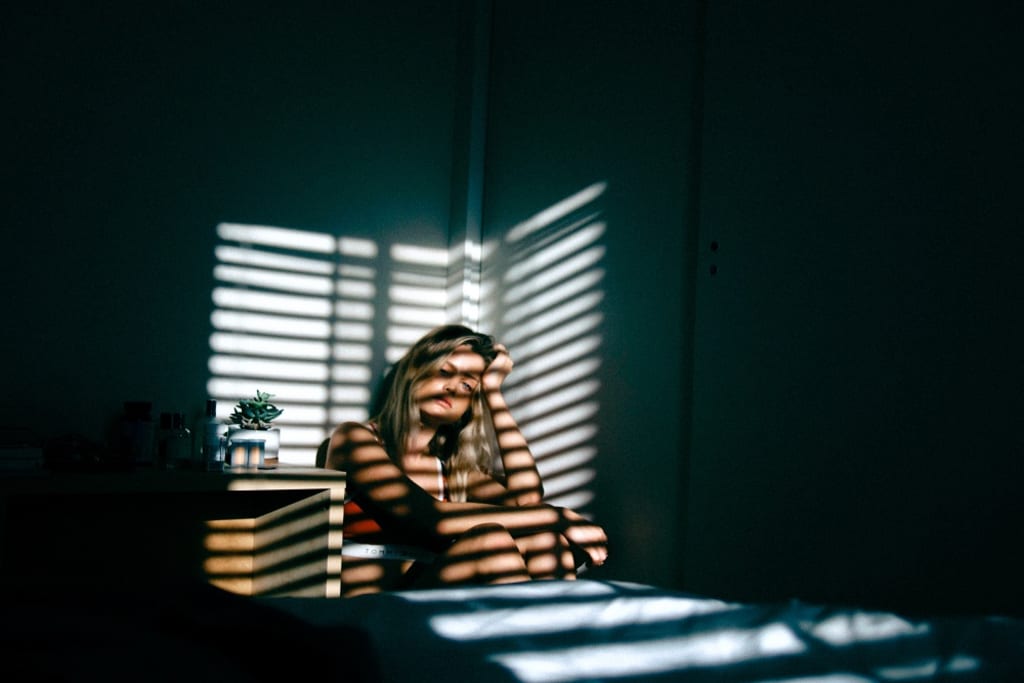The Unfriendly Relationship Between BDD and Depression
Disorders like BDD can be overcome with time and treatment, but the first step is recognizing that you need help.

To anyone looking at me, I’d probably seem like a happy, decent-looking person. I’m easy to talk to, I like to have fun, and I have a lot of friends.
I can tell you that it wasn’t always like this for me.
I’ve battled body dysmorphic disorder for years now. At the height of my fight with it, I took on both BDD and depression, a hefty combination. I was a hollow, nervous, ashamed wreck.
I’m doing a lot better now that I’ve realized that my issues with my body were actually a disorder. As a result of a lot of support and research, I’m in treatment.
Now I want to shed a little light on BDD and depression. As the world continues to enforce strict appearance standards based on little more than aesthetics, it’s the best time to do this. So here goes.
What is BDD?
Body dysmorphic disorder, or BDD, is a mental disorder that focuses a person’s mind on their physical appearance. To put it simply, it’s a disorder where you can’t stop obsessing about your physical flaws, even if they’re imagined or very tiny in scope.
You might read that and think, well, everyone has things about them they don’t like.
That’s true, but BDD goes further. At the height of my disorder, I was ashamed to even go outside because I was so disgusted with my looks. I would avoid parties and family gatherings because I couldn’t stop thinking about how awful I looked.
When you can’t leave your house, or you wear too much makeup and hide your body, that’s BDD. And it can be a serious disorder that messes with your life like it did with mine.
Psychological Effects of BDD
There’s a lot of discussion about the physical effects of BDD, but I was hit hardest by the psychological effects. I would berate myself in front of the mirror, seeing myself as ugly, negative self-talk, and hate being in social situations.
But these are just a few of the effects, which are covered by this Psychology Today article. The truth is that it can get a lot worse; many of us who suffer from BDD also suffer from other disorders, such as OCD and social anxiety disorders.
I wish I had known what was going on at the time, but it makes sense now. BDD is made worse by other disorders, especially obsessive disorders. That’s because BDD is a disorder that focuses on flaws, and OCD just highlights your concerns.
Depression
The Anxiety and Depression Association of America states that many people with BDD also suffer from other disorders. In my case, it was depression, which is unfortunately common in many people with BDD.
Combined with the obsessive nature of BDD, depression can be debilitating. I would hate going outdoors, didn’t want to look at myself in the mirror, and couldn’t imagine being around other people. I isolated myself, ashamed of what I looked like and how I felt in my body.
Depression on its own is hard enough, but when coupled with BDD, the results are devastating. I wouldn’t wish this combination on anyone. It can literally grind your life to a halt, and without treatment, you may find yourself dealing with depression for years.
Prevention
The Mayo Clinic reports that there is no way to prevent body dysmorphic disorder. This can be heartbreaking to hear, especially as it’s obvious that society plays a large role in the expansion of the disorder. More and more young people are hit with ridiculous standards, all with seemingly no end in sight.
I can tell you from personal experience that societal standards are harsh on teens and young adults, so BDD shouldn’t come as a surprise. And with BDD comes depression, making it harder than ever to free yourself and start the healing process.
Treatment
The good news is that there are a few ways to treat BDD, depending on the severity of the disorder.
For mild cases, there is the idea of cosmetic surgery. A good clinic will hear your concerns, evaluate your condition, then make suggestions. If you’re worried about a facial feature, they can fix the problem for you, which may alleviate your depression and help you move on from BDD.
Another great choice, which is always recommended for people with BDD, is cognitive behavioral therapy. If you’re anything like me, you’ll think that this won’t work for you, but trust me, it can help you see all the beautiful things about yourself and help you take back control of your thought patterns.
The International OCD Foundation, known as IOCDF, also recognizes a medication that can be useful. This medicine is known as serotonin reuptake inhibitors, also known as SRIs. The ones used for BDD and co-existing depression, are antidepressants that actually target compulsive behavior and obsessive thoughts.
It took me a long time to come out from under the cloud of BDD and depression. I’m still on the path to recovery, and while it’s a hard road, I know that I am happier now because I’ve sought treatment. I’m hoping that you reading this will help you make the choice to seek treatment.
I’ll leave you with this; disorders like BDD can be overcome with time and treatment, but the first step is recognizing that you need help.
About the Creator
Andrea Dawson
A fitness blogger and a personal trainer.






Comments
There are no comments for this story
Be the first to respond and start the conversation.